If you have more than one cat, you may have noticed that cats have a tendency to bite each other on the neck. Sometimes these bites are on the scruff of the neck, while other times they happen in the throat area. There are actually a few reasons that your cats might be biting each other on the neck, so let’s jump into a few of the reasons for this feline behavior.

The 5 Reasons Why Cats Bite Each Other’s Necks
1. Social Assertion & Territoriality
In nature, cats are usually solitary animals, but domestic cats living in households might compete for territory or resources in the home if there are multiple cats. When first establishing territories and the structures of their social relationship1, aggression including hissing, chasing, swatting, and biting is often seen. Biting other cats, particularly on the back of the neck, is part of this social assertion. After the relationship is solidified, noticeable aggression is rare, provided the environment remains stable and there are no physical disruptions. Occasionally, a cat might bite the other cat’s neck without breaking its skin as a reminder of their place in this territory and to reassert the nature of their social structure.
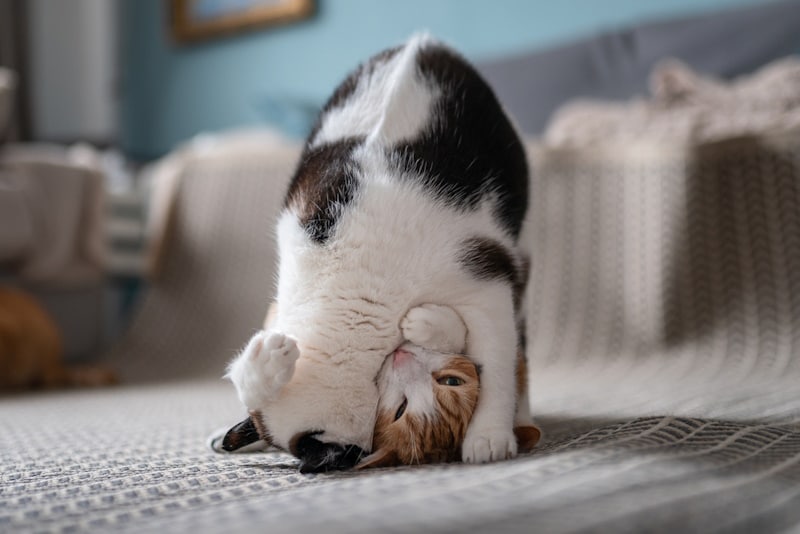
2. Mating
If you’ve ever seen cats mating, then you know that it’s not something that appears gentle. Part of the mating ritual involves the male cat biting the female cat on the back of the neck. It’s likely that this is done to show dominance and to help keep the female in place. This biting is usually not done aggressively enough to break the skin.
3. Play
Some cats love to roughhouse, and biting and scratching are simply part of the game. You may see one of your cats pounce on the other’s back and bite them on the back of the neck, but during play, cats are more likely to bite the front part of the neck.
For kittens, playing is a form of practicing their hunting skills, and adult cats bite their prey on the throat to kill them. If done during play, this biting should not hurt the cat that is being bitten and shouldn’t break the skin, although an over-exuberant cat may unintentionally bite the other cat too hard.
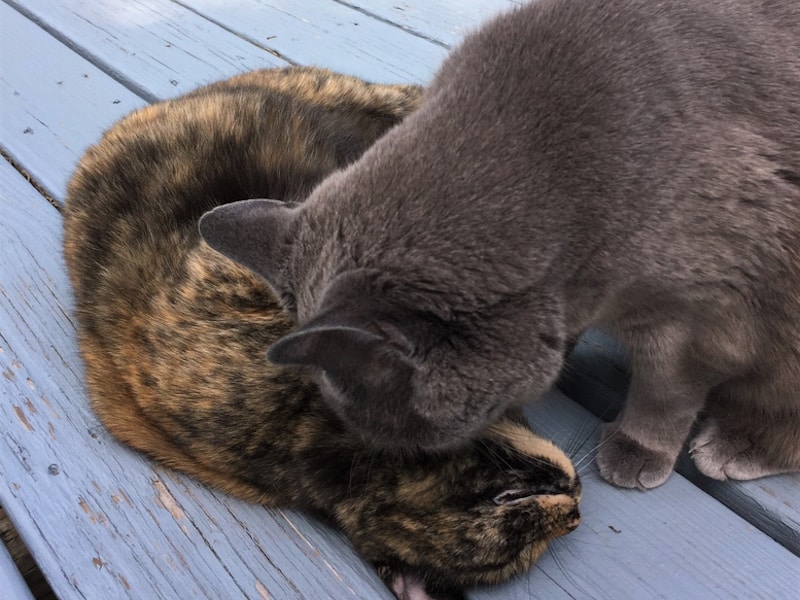
4. Aggression
Biting the neck as a form of aggression is a step above using biting to assert a social relationship. If a cat is showing aggression, they are unlikely to only bite the neck, and there is a good chance that they’ll break the skin with both teeth and claws. If your cats are being rough with each other and either of them is hissing, yowling, or showing signs of fear, then it’s time to break things up so everyone can cool off.
5. Maternal Care
Mother cats bite the backs of their kittens’ necks to carry them, and you may also spot a queen biting the back of the neck of a kitten that isn’t cooperating for a grooming session or is simply misbehaving. This is one of the ways a mother will discipline the kittens and teach them how to survive, and how to behave. This type of biting is typically gentle so as not to hurt or injure the kitten, more like a warning, placing a limit, or telling.

In Conclusion
Cats naturally bite each other on the neck for multiple reasons, and this is a natural behavior. It’s important for you to keep an eye on your cats if you see biting occurring, though. Sometimes, games can get out of hand and turn aggressive. In some cases, you may need to help your cats as they establish their social relationships and territoriality if there’s a new cat in the home. This establishment of relationships can take time and should be monitored closely to make sure your cats aren’t hurting each other.
Featured Image Credit: Katho Menden, Shutterstock
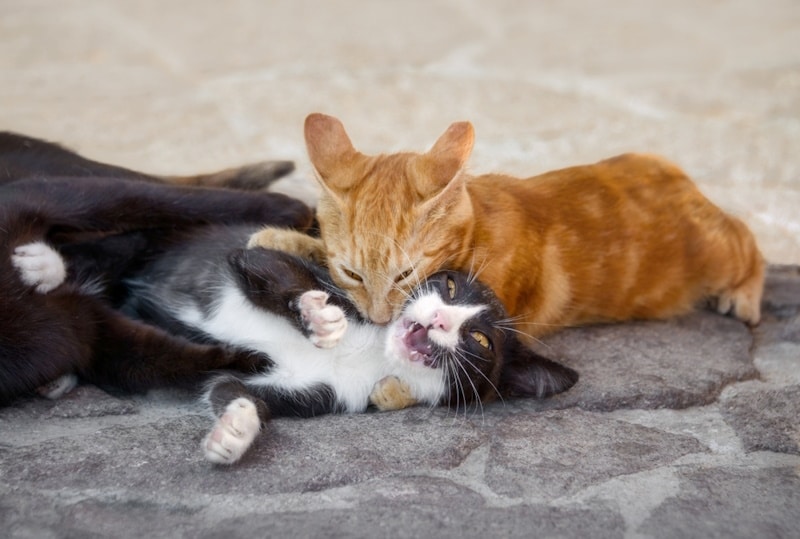



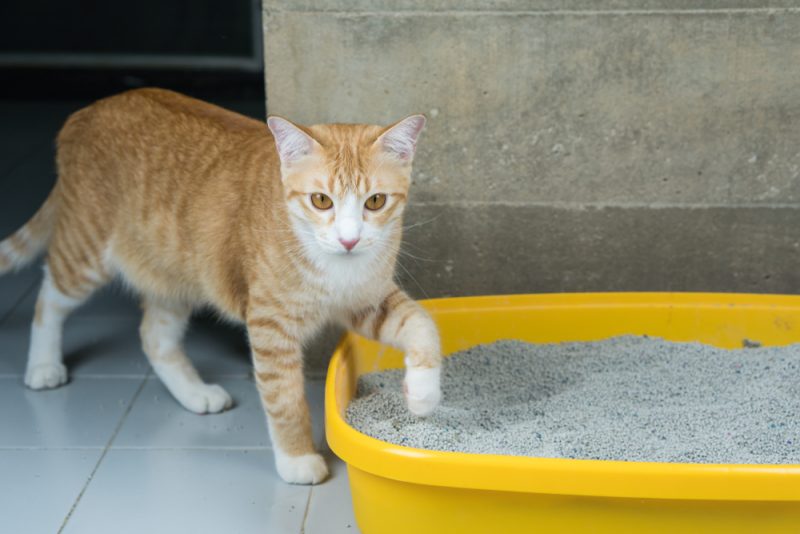
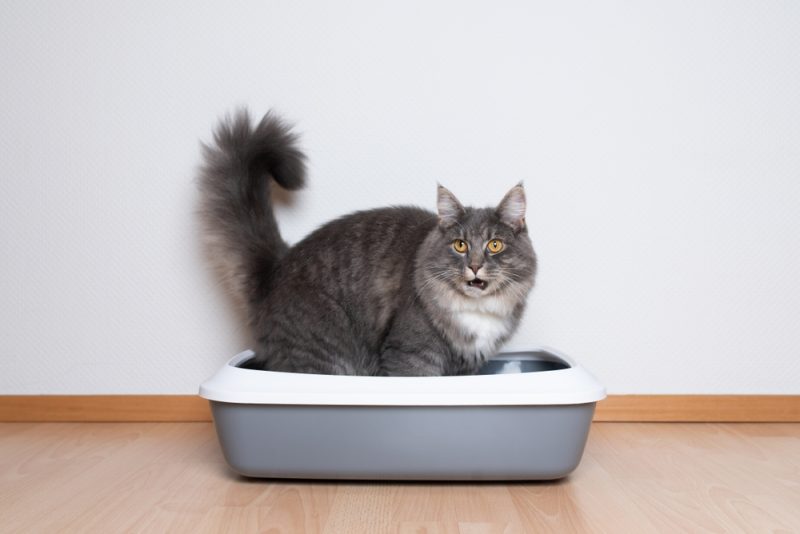
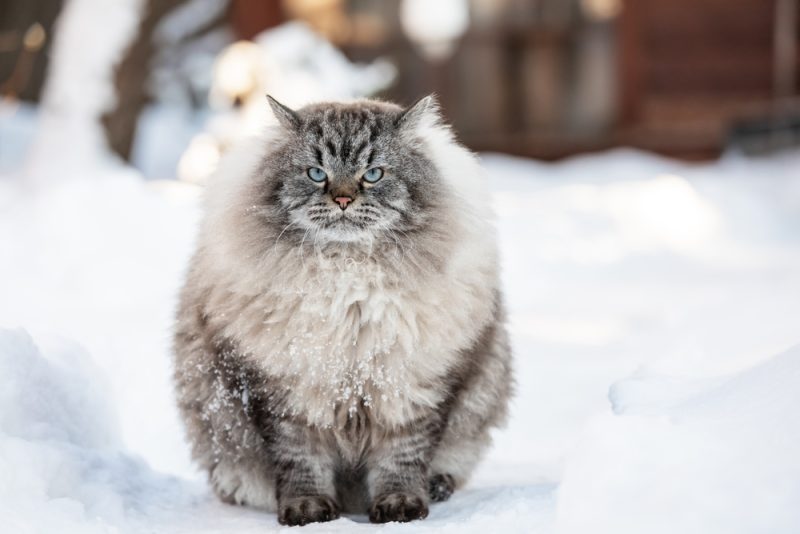
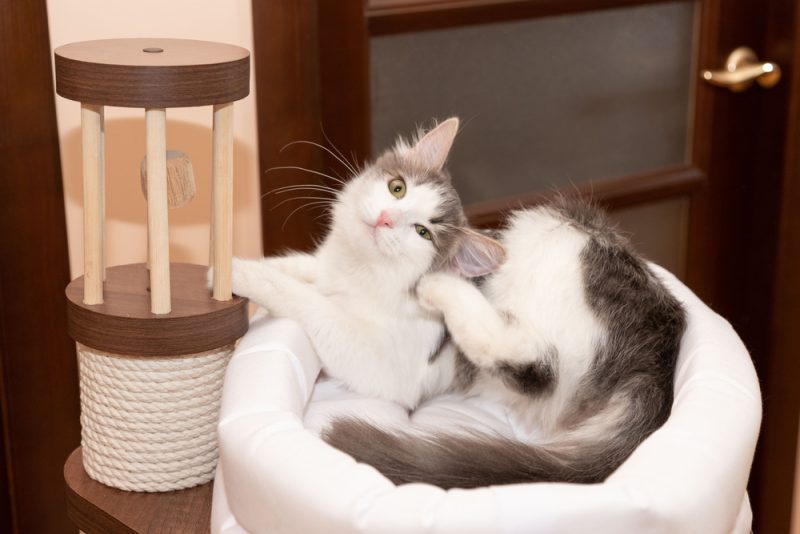

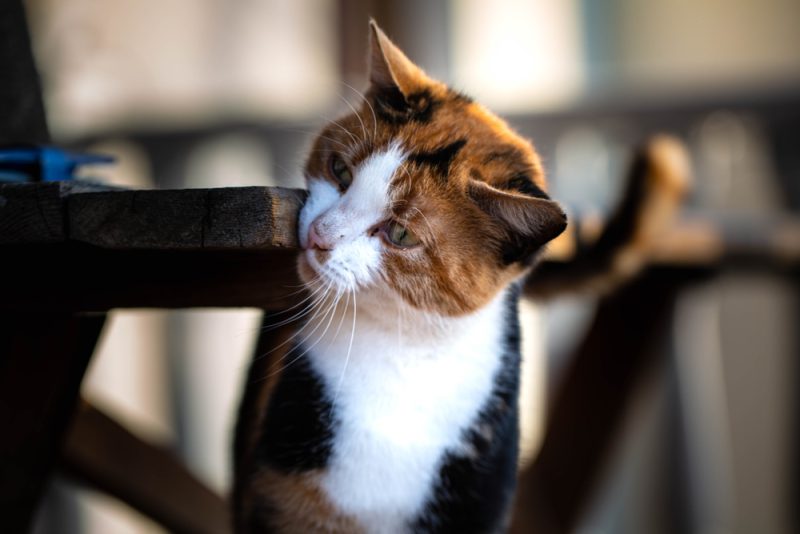

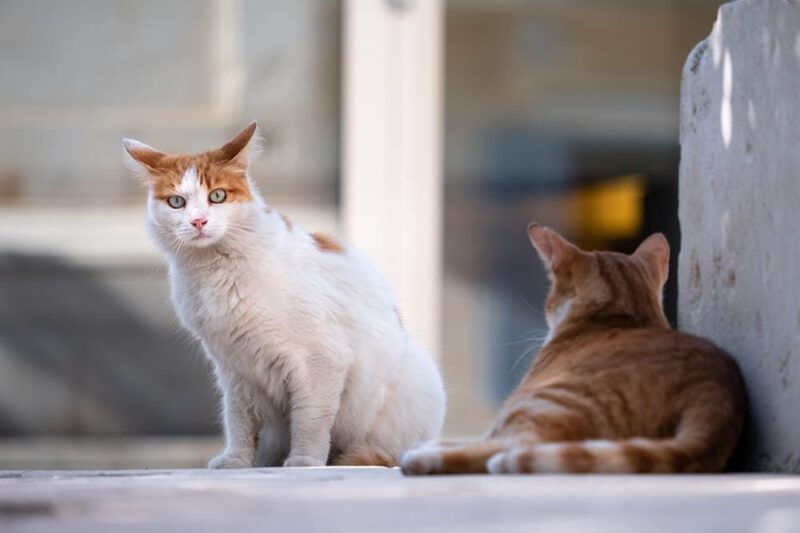




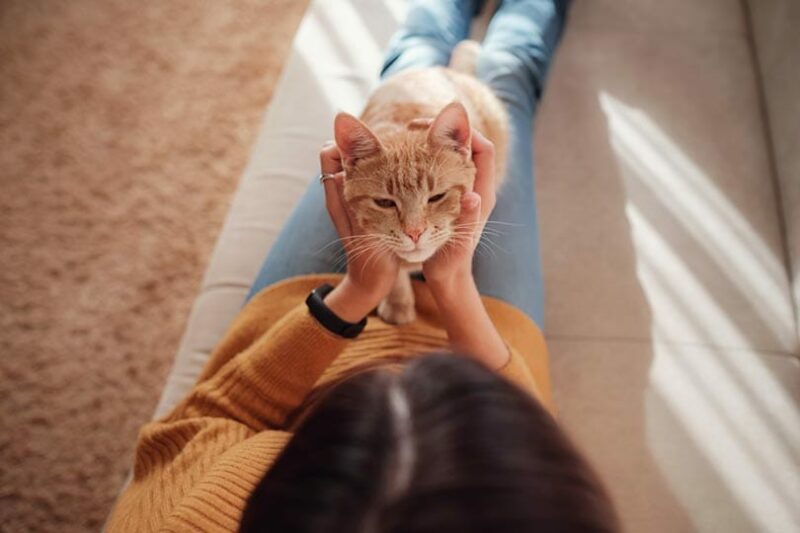
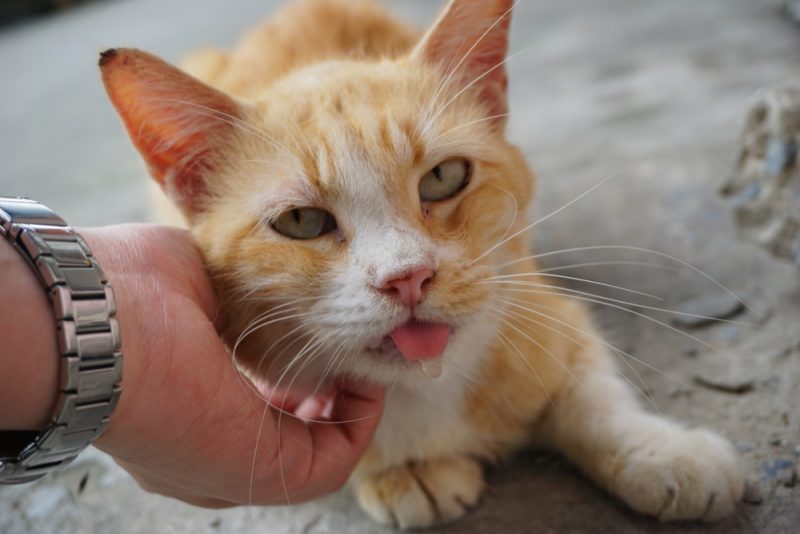



6 Responses
Hi, my name is Theresa. I have rescued a kitten. It has been a little over a year now. She just got fixed, but I do have an older female cat that is fixed in an older male cat that is fixed when I brought new cat in her name is Hope she is constantly biting on their neck and the two older ones cry out because she’s hurting them. What can I do to stop her from doing this
Hi Teresa, thank you for reading us. For a personalized behavior consultation for your cats, we recommend you book a video call with one of our vets at www.pangovet.com
Thank you for the advice. I do intervene often because she sticks to me, her safety zone, and I am retired. The older cat is improving, but I am also increasing the loudnes of voice, and I am chasing him with spray every time he tries. She is also doing her part. She screeches when he gets near. It's difficult because sometimes they do get along. Anyway, I have devised a few hidey-holes where she can go, and he won't fit. It's sad because they are both very affectionate cats. It is getting better.
Hey Carol! Thanks for sharing the update. Great idea about the narrow entrance hideaway spaces, surely she will feel better having some safe spaces and having a chance to heal now.
I have a male cat who is neutered but bites my neutered little female cat constantly on the neck. She now has a scab that he is breaking open. I yell, spray him, etc. He knows better but won't stop. What can I do? This started after my husband died, and the older, larger cat started being jealous.
Hi Carol. We are sorry to hear about your husband's passing and also to hear bout your struggles with your cat’s behavior. This sounds like something habitual, so for now, your best bet is to separate the cats so she gets time to heal. Also, keep a close eye on the wound; bites can easily get infected. In the wild, she would be able to run away but in your home, that is not possible, and given the size difference, it is your responsibility to intervene. After some time apart, you can try to socialize with them. Please don’t hesitate to contact www.pangovet.com for tips on how to socialize your cats. We hope this helps!